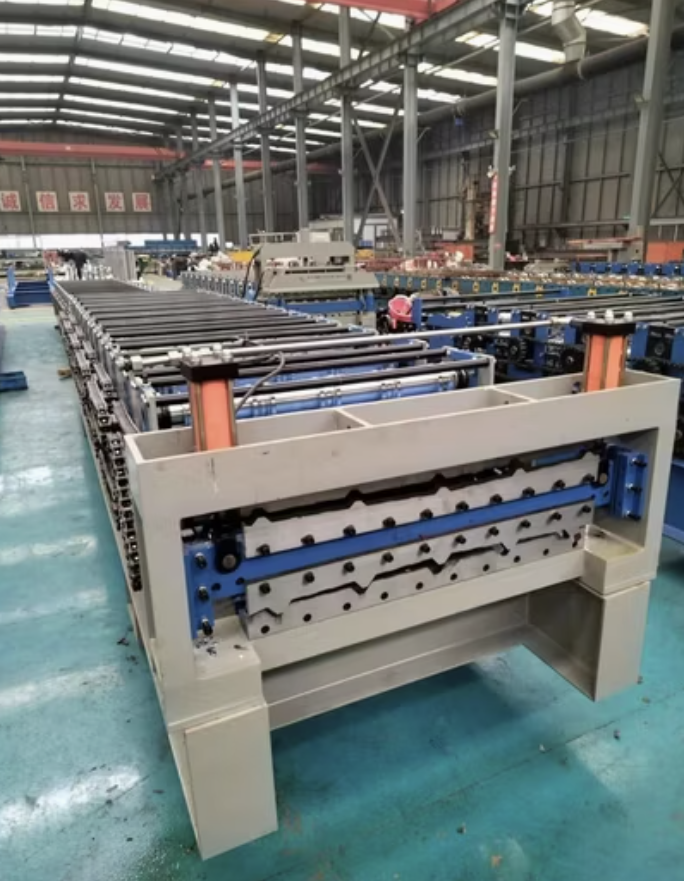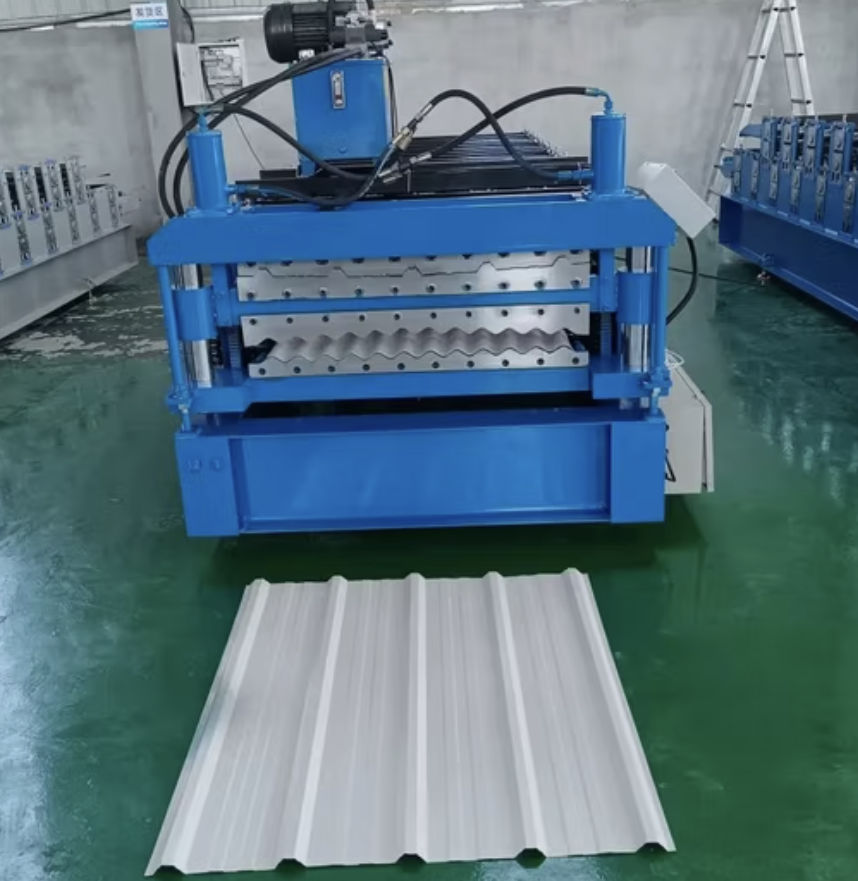To express an interest in this machine please submit the form below.

Not Sure What Machine You Need?
Select Your Profile, We'll Match It
Choose your desired profile drawing, and let Machine Matcher connect you with the best roll forming machine tailored to your needs.
Browse Profiles


Wall panel roll forming machines are essential for manufacturing various wall panels widely used in construction for commercial, residential, and industrial structures. These machines are engineered to produce high-quality, durable wall panels with consistent profiles, making them ideal for building exteriors, interiors, and decorative applications.
Wall panel roll forming machines are designed to shape metal coils into precise, uniform wall panel profiles through a series of rollers. The machine operates by feeding the raw material (typically steel, aluminum, or other metals) into the rollers, which gradually bend the material into the desired shape. Wall panel roll forming machines can produce different profiles to meet varying architectural needs, such as ribbed, flat, or corrugated panels.
Equipped with advanced control systems and robust structures, these machines ensure that the wall panels are of consistent quality, with precision in size and profile. Additionally, they offer options for customization in panel size, thickness, and coating, making them adaptable to diverse construction requirements.
Setting up a wall panel roll forming machine involves ensuring a stable and level foundation, securing the machine, connecting the power supply, and configuring the PLC system. Technicians set up the uncoiler to feed the material and adjust roller spacing and speed as per panel specifications. Regular testing of all safety features and initial test runs are critical before production begins.
To ensure consistent performance, wall panel roll forming machines require regular maintenance. This includes:
Q1: What materials can wall panel roll forming machines process?
A: Wall panel roll forming machines can process a range of materials, including galvanized steel, aluminum, and pre-painted steel. The choice of material depends on the durability, corrosion resistance, and aesthetic requirements for the wall panels.
Q2: Can wall panel roll forming machines produce custom profiles?
A: Yes, many wall panel roll forming machines are designed with flexibility for producing custom profiles. By adjusting roller spacing and configuring the PLC, manufacturers can achieve various panel styles to meet architectural specifications.
Q3: What is the average production speed of a wall panel roll forming machine?
A: The average speed is typically around 10 to 15 meters per minute. However, this can vary based on machine power, panel complexity, and material type.
Q4: How long does it take to install a wall panel roll forming machine?
A: Installation time varies but usually takes between two to four days, including setup and initial testing. Complex setups with additional features or remote controls may take longer.
Q5: What are some essential maintenance tips for wall panel roll forming machines?
A: Regularly clean and lubricate the rollers, inspect the hydraulic system if applicable, check for wear on rollers, and ensure that the PLC system operates smoothly. Consistent maintenance helps maintain product quality and extends the machine’s life.
Q6: Can the machine be used for both interior and exterior wall panels?
A: Yes, the panels produced can be used for both interior and exterior applications. Exterior panels may require additional coating for weather resistance, depending on the material.
Q7: Is it possible to operate the machine remotely?
A: Some models come with a remote PLC system option, allowing for remote adjustments and monitoring. This feature can be especially useful in high-volume production settings where quick changes are needed.
Q8: What factors affect the pricing of wall panel roll forming machines?
A: Pricing is influenced by the machine’s capacity, material compatibility, automation level, additional features (like remote PLC, automatic stackers), and the overall build quality. Customizations in profile options and add-ons also impact cost.
Copyright 2025 © Machine Matcher.